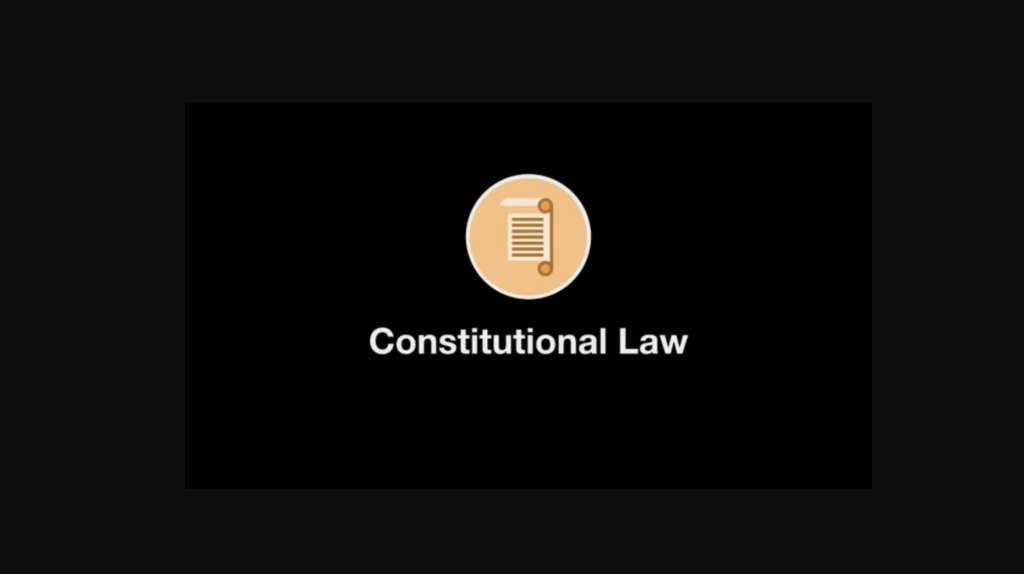Why LEEWS Is the Best Companion for Your Constitutional Law Course

Constitutional Law Course students across the country are quickly learning a vital truth: mastering case law and doctrine isn’t enough to succeed. You also need a tested strategy for writing top-tier exam answers—and that’s where LEEWS comes in. Whether you’re taking your constitutional law class online, attending in-person constitutional law classes near you, or preparing for finals with a thick constitutional law class syllabus in hand, LEEWS gives you the tools to approach your course—and law school exams—with clarity and confidence.
How LEEWS Complements the Structure of a Constitutional Law Class
Most students approach their constitutional law class by doing what they’ve done all their academic lives—read the material, take notes, and review for exams. But law school is different, and Con Law, in particular, is one of the most intellectually rigorous subjects in the legal curriculum. It requires not just memorization, but deep analytical thinking.
The structure of a typical constitutional law class syllabus includes topics like judicial review, separation of powers, federalism, due process, and equal protection. These areas aren’t just theoretical—they’re loaded with nuance, exceptions, historical evolution, and policy debates. Reading cases like Marbury v. Madison, Brown v. Board of Education, and Roe v. Wade is essential, but law professors expect far more from students than simply recalling legal principles.
LEEWS (Law Essay Exam Writing System) steps in right here. It trains you not just to understand constitutional doctrines, but to dissect fact patterns, recognize hidden legal issues, and present reasoned, lawyerly arguments under exam conditions.
Why Constitutional Law Exams Are Harder Than You Think
Constitutional law exams often challenge even the most prepared students. That’s because they don’t simply test whether you know the law—they test how well you can apply it to new, often ambiguous scenarios. You might face a question involving the Commerce Clause or the First Amendment, with no clear right answer. What matters is how well you argue both sides.
Unfortunately, most students don’t get explicit instruction on how to do this. Professors assign hundreds of pages of reading, expect participation in class discussions, and occasionally provide practice questions, but they rarely explain how to construct a winning answer from scratch.
Here’s the truth: knowing the law isn’t enough. You must master the process of legal reasoning—and be able to demonstrate it clearly in writing.
LEEWS teaches exactly that. It’s not just another course or supplement. It’s a system, built specifically for law essay exams, that breaks down the steps of thinking and writing like a lawyer. And that’s why it’s the perfect partner for your constitutional law course online or in-person.
Constitutional Law Course Online? LEEWS Helps You Stay Ahead
If you’re enrolled in a constitutional law course online, you’re likely managing your time more independently than students in traditional classrooms. You might be watching lectures asynchronously, reviewing materials on your own, or trying to figure out complex topics like state action and substantive due process without real-time feedback.
This kind of environment can make it easy to fall into passive learning—watch, note, review—without ever practicing the one skill that truly matters on exams: issue-spotting and structured analysis.
LEEWS bridges that gap. It works seamlessly alongside your online law course, teaching you:
-
How to read exam fact patterns like a lawyer
-
How to break complex questions into manageable sub-parts
-
How to avoid the “brain dump” method that so many students fall into
-
How to write clear, concise, and persuasive arguments under timed conditions
Whether you’re reviewing Lochner v. New York or wrestling with the Dormant Commerce Clause, LEEWS makes sure you’re not just absorbing information—you’re learning how to use it effectively.
What You Learn in a Constitutional Law Course—and What’s Missing
A traditional constitutional law course syllabus usually includes:
-
Judicial power and Article III standing
-
Congressional power under the Commerce and Necessary & Proper Clauses
-
Presidential powers and war powers
-
Federalism and the relationship between state and federal governments
-
The Fourteenth Amendment—equal protection and due process
-
Fundamental rights like privacy, speech, and religion
These topics are foundational for any law student. But again, the syllabus is only part of the picture. Reading opinions is important, but professors rarely teach students how to translate that knowledge into exam answers that earn A’s.
This is where the LEEWS approach fills the gap. It trains you to:
-
Recognize every legal issue embedded in a set of facts
-
Separate relevant from irrelevant information quickly
-
Formulate arguments on both sides of a legal question
-
Organize your analysis in a way that law professors reward
What Makes LEEWS Unique for Constitutional Law Classes Near You
Whether you’re taking a constitutional law class near you at a top law school or community-based legal program, LEEWS fits into your study plan like no other resource.
Here’s why students from schools across the country—from Harvard and Georgetown to regional and online programs—have relied on LEEWS for more than 40 years:
-
It’s not about teaching you the law. You’ll get that from your professors. LEEWS is about teaching you how to use the law under pressure.
-
It’s strategic, not superficial. LEEWS isn’t a collection of exam tips or general writing advice. It’s a carefully structured, logical method that has helped thousands of students improve their performance—often dramatically.
-
It’s exam-focused. LEEWS knows that in law school, exams are everything. You could be the most prepared student in class, but if your exam writing doesn’t match your understanding, your grade will suffer.
So if you’re asking, how do I go beyond my constitutional law class near me and truly excel?—LEEWS is your answer.
LEEWS vs. Other Constitutional Law Exam Prep Options
You may be tempted to rely on commercial outlines, case briefs, or course summaries. And those can help to a degree. But none of them teach the skill of essay exam execution. They focus on content—LEEWS focuses on performance.
Here’s a quick breakdown:
| Resource Type | Helps You Learn the Law | Helps You Write an Exam | Strategic System |
|---|---|---|---|
| Case Briefs & Outlines | ✅ | ❌ | ❌ |
| Commercial Supplements | ✅ | ⚠️ (somewhat) | ❌ |
| Professor Lectures | ✅ | ❌ | ❌ |
| LEEWS | ⚠️ (briefly covers) | ✅✅✅ | ✅✅✅ |
If your goal is to get top grades in your constitutional law course, you must do more than passively absorb the material. You must practice performance, and LEEWS is built specifically to train that muscle.
How LEEWS Helps You Tackle Any Constitutional Law Hypothetical
Let’s say your exam includes a scenario involving:
-
A state law that burdens interstate commerce
-
A challenge based on the Equal Protection Clause
-
An executive action taken without congressional approval
How do you structure your answer?
Without training, most students panic. They start writing what they know about each topic. But that leads to unorganized essays filled with irrelevant facts and unbalanced arguments.
With LEEWS, you’ll know how to:
-
Identify all potential issues in the scenario—nothing gets missed
-
Break your answer into discrete subparts, each tackling a single issue
-
Present both sides of every argument logically, even if the outcome isn’t clear
-
Conclude briefly and move on—no rambling, no wasted time
It’s this level of structured thinking that professors reward. And it’s exactly what LEEWS trains you to do.
Is LEEWS only for 1Ls?
No. While it’s most popular with first-year law students, LEEWS is effective for anyone in a doctrinal course with essay exams—including Con Law II and bar prep.
Will LEEWS teach me constitutional law content?
LEEWS assumes you’re learning the law from your course. Its focus is on teaching you how to perform under exam conditions. You’ll learn how to write better answers using the knowledge you already have.
Is it useful for a constitutional law course online?
Absolutely. Online courses often lack live exam training or individualized feedback. LEEWS fills that gap with a self-paced system that works alongside your online class.
How long does it take to complete LEEWS?
Most students can complete the system in a weekend, but the value comes from applying its method repeatedly. Many students revisit the materials before every exam.
Succeed in Your Constitutional Law Course with LEEWS by Your Side
Success in your constitutional law course doesn’t come from memorizing cases or hoping you spot the right issues on exam day. It comes from preparation, structure, and strategic thinking.
LEEWS (Law Essay Exam Writing System) has helped thousands of students transform the way they approach law exams. It gives you a blueprint to follow, builds confidence in your abilities, and prepares you for high performance not just in Con Law, but across your entire legal education.







